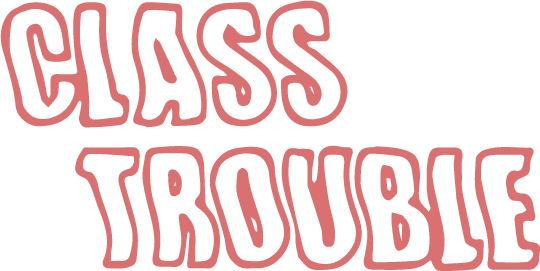May 27th, 2020
J. Edgar Hoover - the first director of the FBI and the creator of COINTELPRO - once said that "Justice is merely incidental to law and order." To him, the law had little to do with what’s “right” and much more to do with what the state considered "order": the maintenance of a very specific social hierarchy. Unsurprisingly, the Black Panthers’ fight for self-determination and Black liberation meant that Hoover considered them to be "the greatest threat to internal security of the country".
A “justice system” rooted in western conceptions of law does not protect us from harm ― if anything, it preserves hierarchies of violence and enforces the state’s power over its citizens.
From this understanding, law doesn't tell us what's "right" ― it only tells us what is authorized and what is punishable. In this framework, the law is simply a reflection of the values of the status quo, a top-down weapon created for and utilized by those in power.
A carceral system is fixated on assigning punishment from above, on the desire to criminalize, on the need to standardize solutions to complex and distinct situations.
A carceral state presents institutionalization, incarceration, litigation, and prosecution as the only possible responses to harm, and makes remediation so much more complicated, lengthy, and traumatic ― even as it claims to be benevolent and efficient.
The lawfulness of a nation-state is a veneer of orderliness and security. We are constantly taught to equate lawfulness with stability, and to view the order of the state as synonymous with peace.
But the very existence of the state is violent, and that violence is concealed and distributed: through prisons, detention camps, in foreign and domestic militarization, in the slow exploitation of our labor, across daily and diffuse acts of aggression towards Black and Indigenous people.
There are no good cops because all cops exist to [pre]serve all laws:
When those laws uphold anti-Blackness.
When those laws criminalize poverty.
When those laws prohibit free food and resource distribution.
When those laws deny treatment for people unable to afford care.
When those laws support landowners in forcing people out of housing during crises.
When those laws would sacrifice Black, Indigenous, and brown lives for an economy that already largely benefits white, wealthy people in power.
As long as hierarchies of state-enforced violence exist, anti-Blackness will continue to be the norm.
As long as the police exist, Black, Indigenous, and other people of color will continue to be targeted.
As long as borders exist there will be someone to exclude.
As long as the state can use force to uphold its decrees, the threat of punishment will loom.
The modern institution of western law is a mass of contradictory tools that power selects from to rationalize its violence, and to perpetrate it en masse. The state can, has, and will declare laws with its own interests in mind ― calculated based on what’s most efficient, on how it can maintain power.
What can stop the system, if not rebellion? As long as states exist they will dictate who gets to live or die - why should they have that power?
Justice can look like many things to many people, but we know what it is not:
Justice is not the re-living and re-creation of historical trauma.
Justice is not the preservation of systemic, cyclical, and generational harm.
Justice is not one-size-fits-all. Justice is not single-handedly determined by adversarial debates in cold courtrooms. Justice is not a process entirely removed from the people who have been harmed and the people who have caused harm. Justice is not deference to “authority” figures. Justice does not live in cages.
Justice is not an institution.
Divest from the carceral state! Confront hierarchies of violence wherever they show up! Commit to unlearning and challenging oppression in all its forms! Support Black and Indigenous people directly in meaningful and material ways! Relinquish generations of wealth stolen through genocide, slavery, and conquest! Abolish prisons, abolish borders! Land back! Reparations now!
"Abolition Requires That We Change One Thing, Which Is Everything. When One Says Prison Abolition, One Cannot Be Talking About Only Prison...It's Building The Future From The Present In All The Ways We Can."
- Ruth Wilson Gilmore via Abolition Journal
Supporting Abolition:
A running list for folks who have been interested in learning more about abolition and challenging/undoing their attachments to the state, to borders, to prisons, to all systems that operate through injustice while claiming to exist for our protection. I’ve mentioned a few resources and groups below, but as @tio.brooke reminded me, abolitionist constellations are vast: know the context of your region, and begin where you are.
Direct Support for George Floyd's Family:
https://www.gofundme.com/f/georgefloyd
Supporting Resistance Movements in Minneapolis:
Readings:- Abolition NOW! by Critical Resistance
- Against Hired Guns
- Angels With Dirty Faces by Walidah Imarisha
- Instead of Prisons: A Handbook for Abolitionists
- We Keep Us Safe by Zach Norris
Abolitionist Groups/Collectives:
- 815 Mutual Aid Network
- Anarkatafuturists
- Black Queer and Intersectional Collective - Columbus
- Black and Pink
- California Coalition for Women Prisoners
- Lausan HK
- Moms United Against Violence and Incarceration
- Oakland Abolition and Solidarity
- RAM-Philly
- Survived and Punished
Abolitionist Media:

